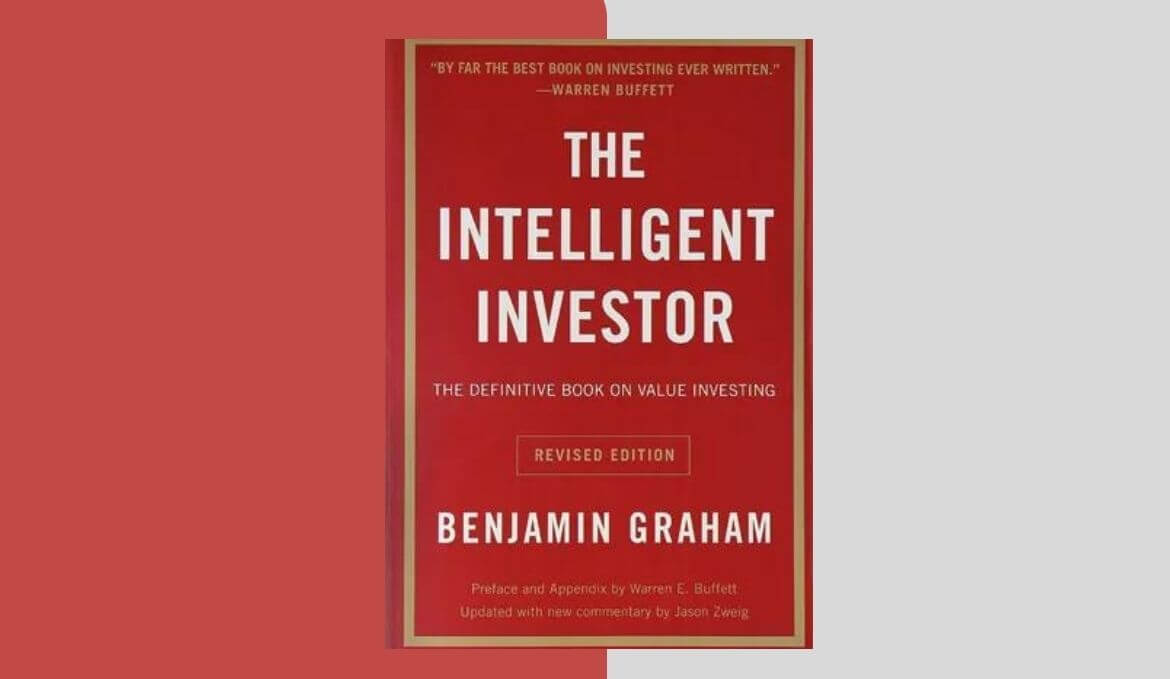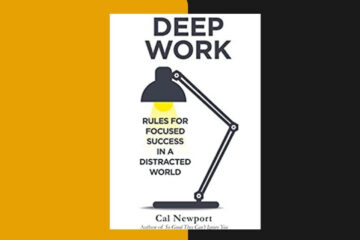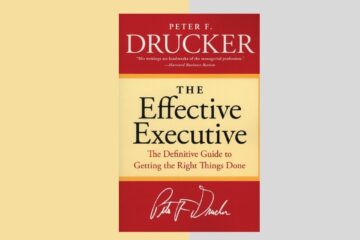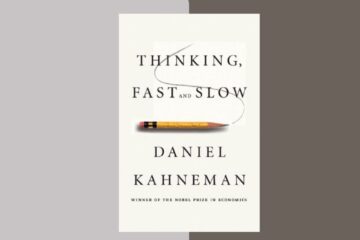The Intelligent Investor is a book written by Benjamin Graham, one of the most prominent investment gurus of the 20th century. Graham is widely regarded as the father of value investing, a philosophy that has been used by many successful investors over the years.
Graham’s teachings have been widely influential over the years, and many successful investors, including Warren Buffett, have credited him as a major influence on their own investment strategies. In fact, Buffett has described Graham’s book The Intelligent Investor as “by far the best book on investing ever written.”
Another reason why value investing has been successful is that it emphasizes the importance of long-term thinking. Value investors are not concerned with short-term fluctuations in the market. Instead, they focus on the underlying fundamentals of the companies they are investing in. By taking a long-term approach, value investors can ride out short-term market fluctuations and benefit from the long-term growth of the companies they invest in. Blow down are the
Chapter 1: Investment versus Speculation
In the first chapter of his book, The Intelligent Investor, Benjamin Graham distinguishes between investing and speculation. He argues that many people confuse the two and that this confusion can lead to unnecessary risks and poor investment decisions.
Investing versus Speculation
According to Graham, investing is the act of putting money into a business or asset with the expectation of earning a return on that investment. Investors make decisions based on the underlying fundamentals of the business or asset, such as its earnings, assets, and management. They take a long-term view and are willing to hold onto their investments for years, even decades.
Speculation, on the other hand, is the act of buying an asset in the hope that its price will go up, without regard for the underlying fundamentals of the asset. Speculators are focused on short-term price movements and are often willing to take on high levels of risk in order to make a quick profit. They are not interested in the long-term prospects of the business or asset they are investing in.
The Importance of Investing with a Margin of Safety
Graham argues that the key to successful investing is to invest with a margin of safety. This means buying an asset at a price that is below its intrinsic value, so that even if the asset’s price declines, the investor is protected from losses.
Graham believes that investing with a margin of safety is the only way to minimize risk and maximize returns. He argues that investors who focus solely on potential returns without regard for the underlying fundamentals of the asset are speculators, not investors.
Avoiding Unnecessary Risks
Graham warns that investors who speculate are taking on unnecessary risks. These risks can be costly, both financially and emotionally. Investors who focus on short-term price movements may find themselves buying and selling assets frequently, incurring high transaction costs and taxes. They may also experience emotional stress as they try to time the market and make quick profits.
Graham’s advice for investors is to focus on the underlying fundamentals of the businesses or assets they are investing in. He encourages investors to take a long-term view and to invest with a margin of safety. By doing so, investors can minimize risk and maximize returns over the long term.
Chapter 2: The Investor and Inflation
In Chapter 2 of The Intelligent Investor, Benjamin Graham explores the impact of inflation on investing. He argues that inflation can erode the value of investments over time, and that investors need to take this into account when making investment decisions.
Impact of Inflation on Investing
Graham notes that inflation can have a significant impact on investments, especially over the long term. As the value of money decreases over time, the real value of an investment can be eroded. For example, if an investor buys a bond that pays a fixed rate of interest, but inflation increases, the real return on the investment may be reduced.
Strategies for Protecting Against Inflation
Graham suggests several strategies for protecting against inflation. One strategy is to invest in stocks rather than bonds. Stocks represent ownership in a company, and as the company grows and earns more profits, the value of the stock can increase. This can help protect against the effects of inflation.
Another strategy is to invest in companies that are likely to benefit from inflation. For example, companies that produce commodities such as oil, gold, or silver may see their profits increase during periods of high inflation. Investing in real estate can also be a good strategy for protecting against inflation, as property values may increase along with inflation.
Importance of Understanding the Inflation Rate
Graham emphasizes the importance of understanding the inflation rate when making investment decisions. Investors need to take into account the effects of inflation on the value of their investments, and adjust their investment strategies accordingly.
One way to stay informed about inflation is to monitor the Consumer Price Index (CPI), which is a measure of the average change in prices paid by consumers for goods and services over time. The CPI can be used to track changes in the inflation rate and to adjust investment strategies accordingly.
Chapter 3: A Century of Stock Market History
In Chapter 3 of The Intelligent Investor, Benjamin Graham takes a look at the historical performance of the stock market over the course of a century. He examines the ups and downs of the market, as well as the lessons that can be learned from past market crashes.
Historical Performance of the Stock Market
Graham notes that over the long term, the stock market has generally produced positive returns. However, there have been periods of volatility and uncertainty, such as during the Great Depression of the 1930s and the dot-com bubble of the late 1990s.
Despite these challenges, Graham argues that the stock market has proven to be a reliable source of long-term investment returns. He notes that investors who have held onto their investments over a period of several decades have generally seen positive returns, despite short-term market fluctuations.
Lessons from Past Market Crashes
Graham suggests that one of the most important lessons from past market crashes is the importance of a margin of safety. He argues that investors should always be prepared for the possibility of a market downturn, and should seek to protect their investments by investing in companies with solid financials and a proven track record of success.
Another lesson from past market crashes is the importance of patience and a long-term perspective. Graham notes that investors who panic and sell their investments during a market downturn often end up losing money, as they miss out on the recovery that usually follows.
Importance of a Long-Term Investing Strategy
Graham emphasizes the importance of a long-term investing strategy in order to succeed in the stock market. He notes that short-term fluctuations in the market can be unpredictable, and that investors who are focused on short-term gains may end up making poor investment decisions.
Instead, Graham suggests that investors should focus on investing in companies with solid financials and a proven track record of success. He also suggests that investors should be patient and disciplined, and should avoid being swayed by short-term market fluctuations.
Chapter 4: General Portfolio Policy: The Defensive Investor
In Chapter 4 of The Intelligent Investor, Benjamin Graham outlines his recommendations for portfolio policy for the defensive investor. He defines a defensive investor as someone who is more concerned with the preservation of capital than with maximizing returns, and who is willing to accept lower returns in exchange for a lower level of risk.
Characteristics of a Defensive Investor
Graham suggests that defensive investors should seek to minimize their risk by investing in a diversified portfolio of stocks and bonds. He also recommends that they focus on investing in high-quality, established companies with a proven track record of success.
Strategies for Portfolio Diversification
Graham emphasizes the importance of portfolio diversification for defensive investors. He recommends that they invest in a mix of stocks and bonds in order to balance their risk and potential returns.
For stocks, Graham suggests that defensive investors focus on large, established companies with a long history of success. He also advises diversifying across different industries and sectors, in order to minimize the impact of any one company or industry on the overall portfolio.
For bonds, Graham recommends investing in high-quality, investment-grade bonds that are backed by reputable issuers. He also suggests diversifying across different types of bonds, such as government bonds, municipal bonds, and corporate bonds.
Importance of Selecting High-Quality Investments
Graham stresses the importance of selecting high-quality investments for the defensive investor. He suggests that investors should focus on companies with a strong financial position, including a solid balance sheet, consistent earnings, and a strong competitive position in their industry.
In addition, Graham recommends that investors look for companies with a history of paying dividends, as this can provide a reliable source of income for the investor.
Chapter 5: The Defensive Investor and Common Stocks
In Chapter 5 of The Intelligent Investor, Benjamin Graham focuses on the role of common stocks in the portfolio of a defensive investor. He discusses the advantages and disadvantages of investing in common stocks, as well as strategies for selecting stocks that are suitable for the defensive investor.
Advantages and Disadvantages of Common Stocks
Graham notes that common stocks offer several advantages for investors. They offer the potential for long-term capital appreciation, as well as the possibility of receiving dividends. In addition, stocks are generally more liquid than other types of investments, which makes it easier for investors to buy and sell shares as needed.
However, common stocks also have several disadvantages. They are typically more volatile than other types of investments, and their prices can fluctuate widely in response to market conditions. In addition, stocks are generally considered to be riskier than bonds, as there is no guarantee of a fixed return on investment.
Strategies for Selecting Common Stocks
Despite these risks, Graham believes that common stocks can play an important role in the portfolio of a defensive investor. He recommends that investors focus on stocks that meet certain criteria, including a history of consistent earnings, a strong financial position, and a long-term competitive advantage in their industry.
Chapter 6: Portfolio Selection for the Enterprising Investor
In Chapter 6 of The Intelligent Investor, Benjamin Graham shifts his focus to the enterprising investor, who is willing to take on more risk in order to achieve higher returns. He discusses the characteristics of the enterprising investor and provides strategies for selecting undervalued stocks that have the potential for strong returns.
Characteristics of an Enterprising Investor
Graham notes that the enterprising investor is generally more active and aggressive than the defensive investor. This type of investor is willing to take on more risk in order to achieve higher returns, and is typically more engaged in the process of selecting and managing investments.
However, Graham also cautions that the enterprising investor must be careful not to take on too much risk, and should still adhere to the principles of value investing that he advocates throughout the book.
Strategies for Selecting Undervalued Stocks
To select undervalued stocks, Graham recommends that the enterprising investor focus on a few key metrics, including the price-to-earnings ratio, the price-to-book ratio, and the dividend yield. These metrics can help the investor identify stocks that are trading at a discount to their intrinsic value, and therefore have the potential for strong returns.
In addition, Graham advises that the enterprising investor conduct a thorough analysis of a company’s financial statements, including its balance sheet, income statement, and cash flow statement. This analysis can help the investor understand the company’s financial position and identify any potential risks or opportunities.
Importance of Financial Analysis and Due Diligence
Overall, Graham emphasizes the importance of financial analysis and due diligence for the enterprising investor. He notes that while there are no guarantees when it comes to investing, a disciplined and rigorous approach can help the investor identify high-quality investments that have the potential for strong returns over the long term.
Chapter 7: The Analysis of Financial Statement
Chapter 7 of The Intelligent Investor by Benjamin Graham delves into the importance of analyzing financial statements when making investment decisions.
Key Financial Ratios and Metrics for Analysis
Graham notes that investors should focus on a few key financial ratios and metrics when analyzing financial statements. These include the price-to-earnings ratio, the price-to-book ratio, the debt-to-equity ratio, the return on equity, and the dividend yield.
By analyzing these metrics, investors can gain insights into a company’s financial health, profitability, and potential for growth. For example, a company with a low price-to-earnings ratio may be undervalued by the market, while a high return on equity may indicate that a company is effectively utilizing its assets to generate profits.
Importance of Understanding Financial Statements
Graham emphasizes the importance of understanding financial statements, including the balance sheet, income statement, and cash flow statement. These statements provide crucial information on a company’s financial position, performance, and cash flow.
Investors should pay particular attention to a company’s assets and liabilities, as well as its revenue and expenses. By understanding these elements of a company’s financial statements, investors can gain a deeper understanding of the company’s overall financial health and identify any potential red flags or areas of concern.
Strategies for Identifying High-Quality Companies
Graham advises investors to focus on identifying high-quality companies that have a track record of consistent performance and a strong financial position. This includes companies with low debt-to-equity ratios, high return on equity, and a history of paying dividends.
Summary Of Key Take Aways
Throughout the book, Graham offers practical advice on how to build a diversified portfolio, navigate market fluctuations, and identify high-quality investments. He stresses the importance of avoiding emotional decision-making and maintaining a margin of safety in all investment decisions.
One of the key takeaways from “The Intelligent Investor” is the importance of understanding your own risk tolerance and investment objectives. By developing a clear investment strategy and sticking to your principles, you can build a portfolio that is tailored to your needs and goals.
Another important lesson from the book is the value of financial analysis and due diligence. Graham emphasizes the importance of understanding financial statements, key financial ratios and metrics, and other indicators of a company’s financial health. By taking a rigorous and analytical approach to investing, you can identify undervalued stocks and other investment opportunities that may be overlooked by others.
Overall, The Intelligent Investor is a must-read for anyone who is serious about building wealth through investing. While the world of investing may be complex and unpredictable, Graham’s approach provides a solid foundation for making informed decisions and achieving long-term financial success. Whether you are a novice investor or a seasoned pro, there is something to be gained from the insights and wisdom contained within this classic book.



